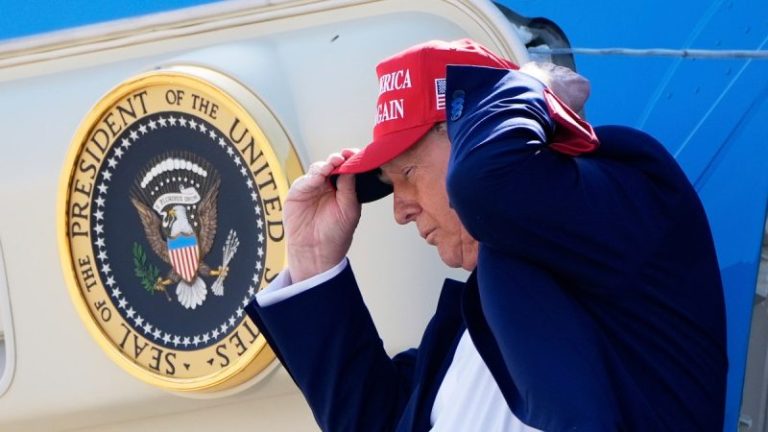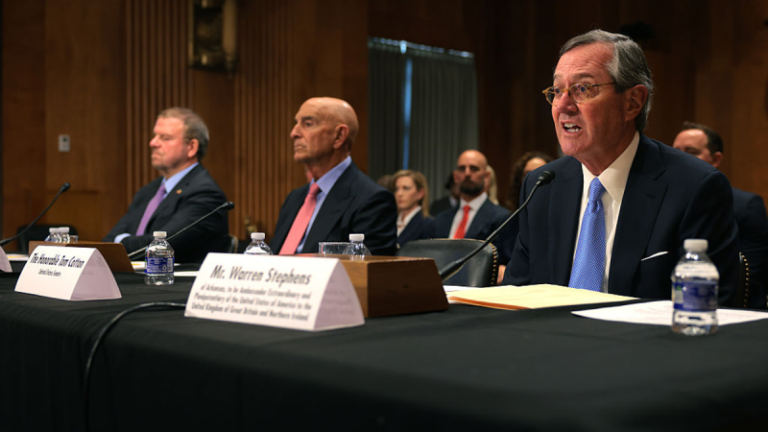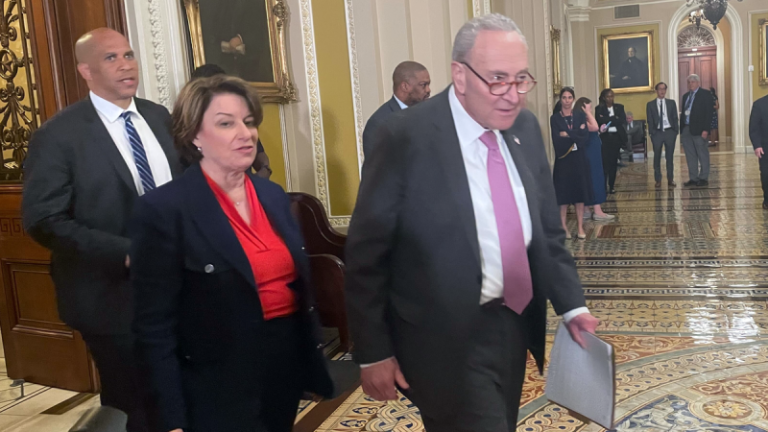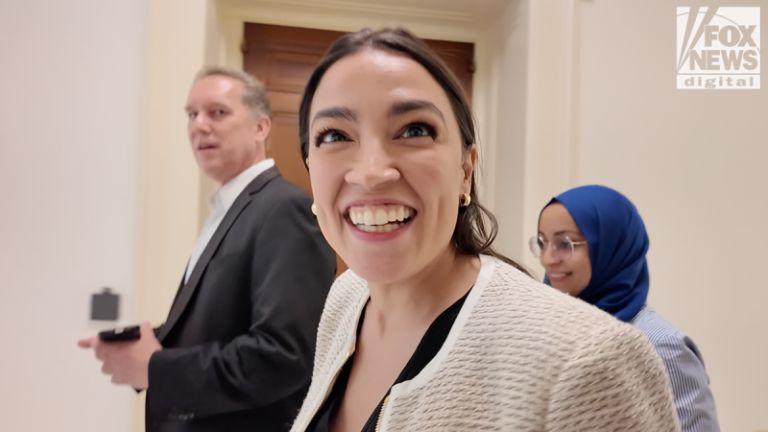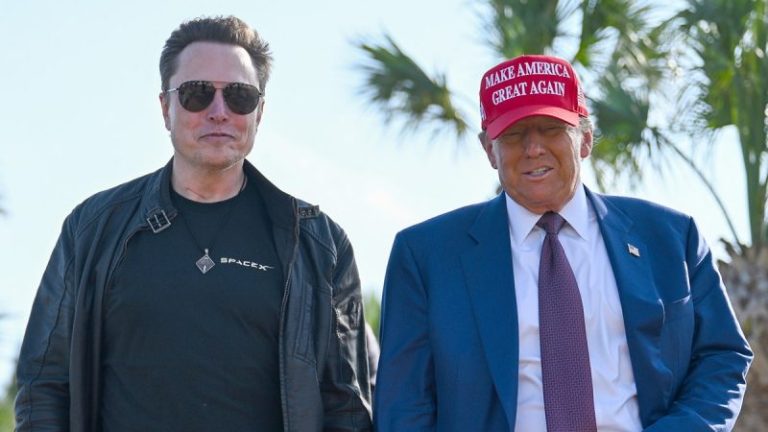The world is arming itself at the fastest rate since near the end of the Cold War, according to a new report, as major wars rage in Ukraine and Gaza and military tensions spike from Europe to Asia.
The 9.4% year-on-year rise to $2.718 trillion in global military spending in 2024 is the highest figure ever recorded by the authoritative Stockholm International Peace Research Institute (SIPRI) in its annual report – which warned there’s no end in sight to the spiraling global arms race. That is the highest rise since 1988, the year before the Berlin Wall fell.
“Many countries have also committed to raising military spending, which will lead to further global increases in the coming years,” the report said.
The United States remains by far the world’s biggest military spender – almost a trillion dollars in 2024, the report said.
Big ticket items in the US budget included F-35 stealth fighters and their combat systems ($61.1 billion), new ships for the US Navy ($48.1 billion), modernizing the US nuclear arsenal ($37.7 billion) and missile defense ($29.8 billion).
The US budget included $48.4 billion in aid for Ukraine, almost three-quarters of Kyiv’s own defense budget of $64.8 billion.
China followed the US in overall military spending with an estimated $314 billion, just under a third of the US total, the report said.
It did not break down Beijing’s spending by weapons or command, but noted China “unveiled several improved capabilities in 2024, including new stealth combat aircraft, uncrewed aerial vehicles (UAVs) and uncrewed underwater vehicles.”
“China also continued to rapidly expand its nuclear arsenal in 2024,” the report said.
Together, Washington and Beijing accounted for almost half of the world’s military spending in 2024, the report said.
But countries involved in – or wary of – regional conflicts showed the biggest increases in spending year over year.
Israel, which launched an invasion of the Palestinian territory of Gaza in 2023, showed a whopping 65% increase in military spending in 2024.
Meanwhile, Russia, which invaded Ukraine in 2022, showed an estimated increase of at least 38%, but the SIPRI noted that figure was likely higher as Moscow augments military coffers with money from regional and other sources.
The more than three-year-long conflict in Ukraine has seen NATO countries significantly boost their military budgets in response to Russia’s belligerence and as US President Donald Trump presses Europe and the US-led alliance to be more responsible for their defense, saying they’ve been taking advantage of the United States for too long.
Germany, with the world’s fourth-largest defense budget, upped its spending by 28%. Romania (43%), the Netherlands (35%), Sweden (34%), the Czech Republic (32%), Poland (31%), Denmark (20%), Norway (17%), Finland (16%), Turkey (12%) and Greece (11%), were the other NATO members among the top 40 defense spenders worldwide who showed double-digit increases in 2024.
“The rapid spending increases among European NATO members were driven mainly by the ongoing Russian threat and concerns about possible US disengagement within the alliance,’ said Jade Guiberteau Ricard, researcher with the SIPRI Military Expenditure and Arms Production Programme.
But analysts said it may take more than money for US allies in Europe to become militarily self-sufficient.
“It is worth saying that boosting spending alone will not necessarily translate into significantly greater military capability or independence from the USA. Those are far more complex tasks,” SIRPI researcher Guiberteau Ricard said in a press release.
In the Indo-Pacific, the SIPRI said China’s 7% increase in 2024 marked the 30th consecutive year-over-year rise in spending for the People’s Liberation Army, “the largest unbroken streak recorded” in the institute’s database, the report said.
“China’s military build-up has also influenced the military policies of its neighbors, prompting many of them to increase spending,” it said.
Japan’s military budget rose 21% in 2024 – Tokyo’s largest increase since 1952. That brought military spending to 1.4% of gross domestic product, the biggest chunk of Japan’s economy devoted to the military since 1958.
The Philippines, embroiled with China in territorial disputes in the South China Sea, increased its defense spending 19%.
And though spending in South Korea went up only 1.4% in 2024, Seoul has the “highest military burden in East Asia,” at 2.6% of GDP, the institute said.
Taiwan, an island democracy of some 23 million people that the Chinese Communist Party claims as its own and has vowed to seize by force if necessary, increased its defense budget by only 1.8% last year, but Taipei’s military spending is up 48% since 2015, the report said.
India, meanwhile, had the world’s fifth-largest defense budget ($86.1 billion) in 2024. New Delhi’s increase over 2023 was only 1.6%, but the country’s defense spending is up 42% over the past decade, indicative of a troubling trend, researchers said.
“Major military spenders in the Asia–Pacific region are investing increasing resources into advanced military capabilities,” Nan Tian, director of the SIPRI Military Expenditure and Arms Production Programme, said. “With several unresolved disputes and mounting tensions, these investments risk sending the region into a dangerous arms-race spiral.”
Also in Asia, Myanmar, which has seen internal conflict since a military coup in 2021, increased spending by 66% in 2024. At 6.8% of its GDP, Myanmar maintains the largest military burden in the Asia-Pacific, the report said.
Military expenditures in Africa were up 3% overall in 2024. Algeria is the continent’s biggest spender, while ranking 20th worldwide.
In the Americas, Mexico showed a 39% surge in military spending in 2024, “reflecting the government’s increasingly militarized response to organized crime,” the report said.
This post appeared first on cnn.com





